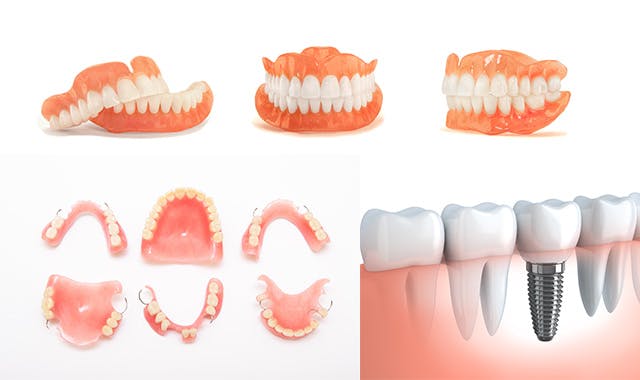YOU JUST FOUND OUT YOU NEED A TOOTH EXTRACTION – NOW WHAT?
If you’re reading this, your dentist has probably just told you that one or more of your teeth has to be removed. We know that this might feel like shocking and overwhelming news, but rest assured that you are not alone – our site has been created to provide you with information that may help you through every step of the journey ahead.
While losing a tooth will involve temporary adjustments to your life, tooth replacements are now so advanced that things will soon get back to normal. You’ll eat, talk and laugh - just as you do now, and we’re here to help while you work towards that.
What happens next
• If you've been told a tooth must come out, you’ll be booked in for a tooth extraction procedure and your dentist will spend time with you to discuss the best choice for tooth replacement.
• There are different types of dentures and lots of other options to replace your missing tooth. These include:
Partial denture
A partial dentures are used to replace one or more teeth and clip onto your remaining teeth.
Full denture
A removable set of teeth used when all of your upper or lower teeth need to be removed.
Bridge
A new artificial tooth is cemented on either side to the remaining teeth. It is not removable.
Dental implant
A titanium root that mimics your natural root is surgically placed into the bone beneath your gum and then a prosthetic tooth is attached. Like a bridge, an implant is not removable.
• Which of the options you choose may depend on cost, the health of your gums and bone, and which tooth (or teeth) is being removed. For example, if your gums aren’t healthy or you have bone loss, a dental implant may not be suitable. It is good long-lasting option if your gums and bone are healthy, if you’re only replacing a small number of teeth and you can afford it.
• Removable dentures are generally the most economical option and dental implants the most expensive.
Why you need to replace your missing tooth
Putting off the decision to replace a missing tooth may cause your remaining teeth to shift, affecting your bite and appearance. It can also cause decay and gum disease from trapped food. Follow the advice of your dentist if they tell you a replacement needs to go in.
The emotional side of tooth loss
As well as dealing with the physical aspects of losing a tooth, it can come with emotional struggles too. You may feel angry, worried, powerless, sad, guilty – all of these feelings are entirely normal.
Your teeth are part of your body and identity, and affect how you eat and communicate, so it’s OK to turn your thoughts to how tooth loss will impact your life. Whether you choose a denture, bridge or dental implant, it’s not your natural tooth, so allow yourself time to get used to it.
If you choose dentures…
• As experts on caring for dentures, we can tell you that if you choose this option to replace your teeth, any challenges you’ll face are temporary and can be overcome in time with the guidance of your dentist and the bank of content we’ve developed to help support you through this journey.
• In India, about one in seven people above the age of 45 years wear dentures1, which means that several people you know are probably wearing them right now.
• They’re not the preserve of elderly people – denture wearing incidence is seen to increase sharply after 45 years.
Life will go back to normal
Getting dentures takes some getting used to, but millions of people do it every day and live happy, normal lives.
Advances in the way that dentures are made means that they look the same as enamel teeth and they’ll be color-matched to your existing teeth, so it’s entirely up to you whether you divulge to friends and family that you’re a denture wearer.
Initially, eating and speaking can take some getting used to and you’ll need to make allowances for that, such as eating softer foods and practicing speaking with your dentures in, but there is plenty of information on this site that may help to see you through that journey with ease. You will eat in public, laugh with friends and give presentations. Everything is possible.
Your action plan
• You may have been too overwhelmed by the news of your tooth loss to fully absorb information given to you by your dentist, but now is the time to take back control by arming yourself with as much knowledge as possible. The power is in your hands.
• Before your next appointment, research the types of tooth replacement and their cost so that you can have a full and informed discussion with your dentist, and also note down any questions you have on the effects of tooth loss after your tooth extraction procedure.
• Take a pen and paper with you so that you or a friend/family member can note down the answers. Feeling informed and prepared will enable you to face this upcoming life event in a positive and proactive way.
External references:
1 : Kantar IMRB Study conducted in Jan'20







